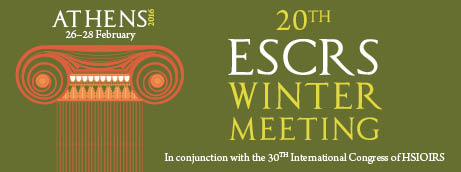Posters
(results will display both Free Papers & Poster)
Quantitative analysis of corneal backward light scattering in patients with type 2 diabetes
Poster Details
First Author: P.Ozyol TURKEY
Co Author(s): E. Ozyol
Abstract Details
Purpose:
To analyze the corneal backward light scattering differences in patients with type 2 diabetes.
Setting:
Mugla University Faculty of Medicine, Department of Ophthalmology
Methods:
Forty-three eyes of 43 diabetic patients and 40 eyes of 40 healty controls were enrolled. Corneal backward light scattering was evaluated using densitometry measurements from different corneal layers and zones obtained using Scheimpflug tomography (Pentacam HR).
Results:
Diabetic eyes had significantly higher total corneal backward light scattering measurements than the controls (P=0.023). When considered by concentric zones, corneal densitometry measurements of the 0 to 2mm zone, the surrounding 2 to 6mm and 6 to 10mm zones in the anterior layer were significantly higher in diabetic eyes compared with controls (P˂0.001, P˂0.001, P=0.001, respectively). When densitometry values were divided by depth, anterior layer displayed significantly higher values in diabetic eyes than in controls (P=0.0012). There was an excellent positive correlation between total corneal densitometry measurements and diabetes duration (Pearson r=0.802, P=0.00).
Conclusions:
Backward light scattering values from the anterior layer of cornea are greater in diabetic eyes than in controls. The higher values in corneal densitometry measurements may allow to estimate that abnormal glucose metabolism exists for a long time.The corneal densitometry measurements might be useful in evaluation and following of diabetic changes in cornea via Scheimpflug system with which corneal backward light scattering rapidly could be assessed. FINANCIAL DISCLOUSRE: NONE


